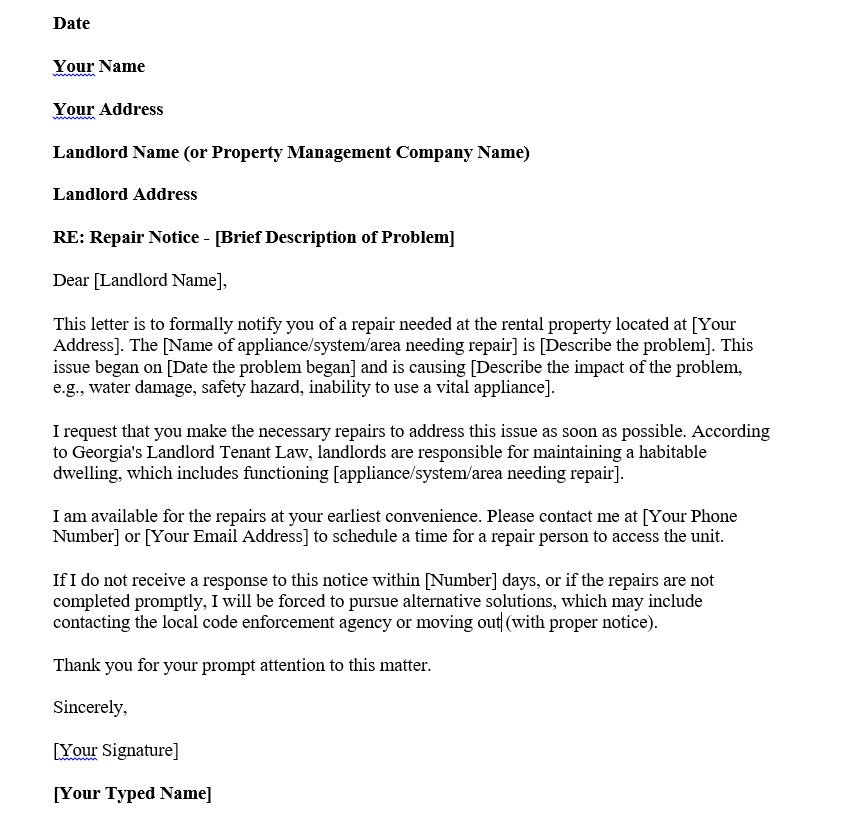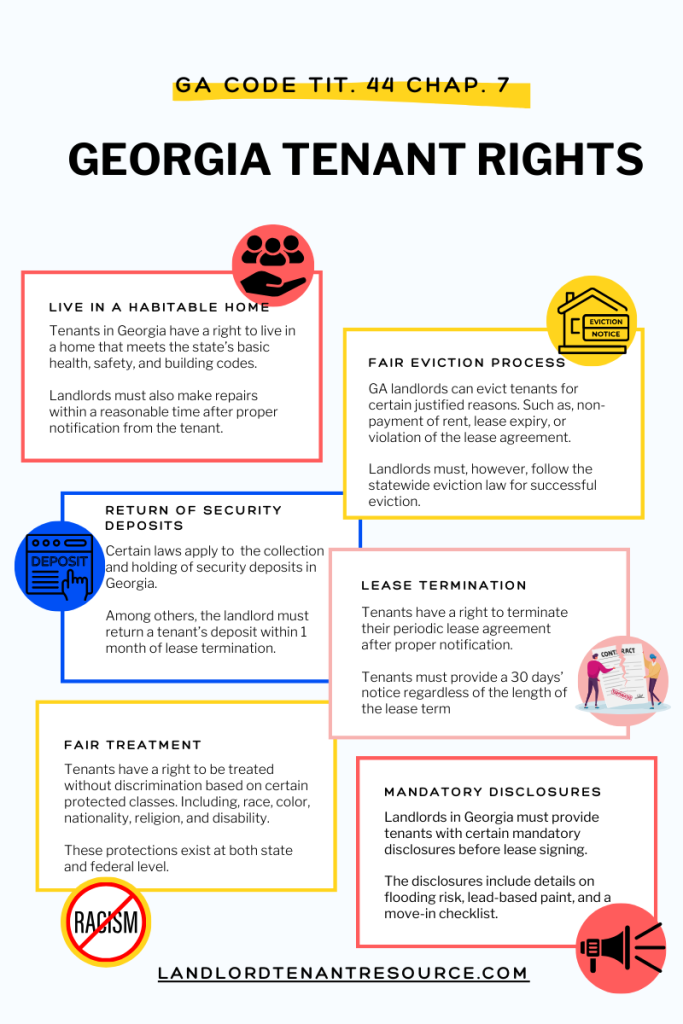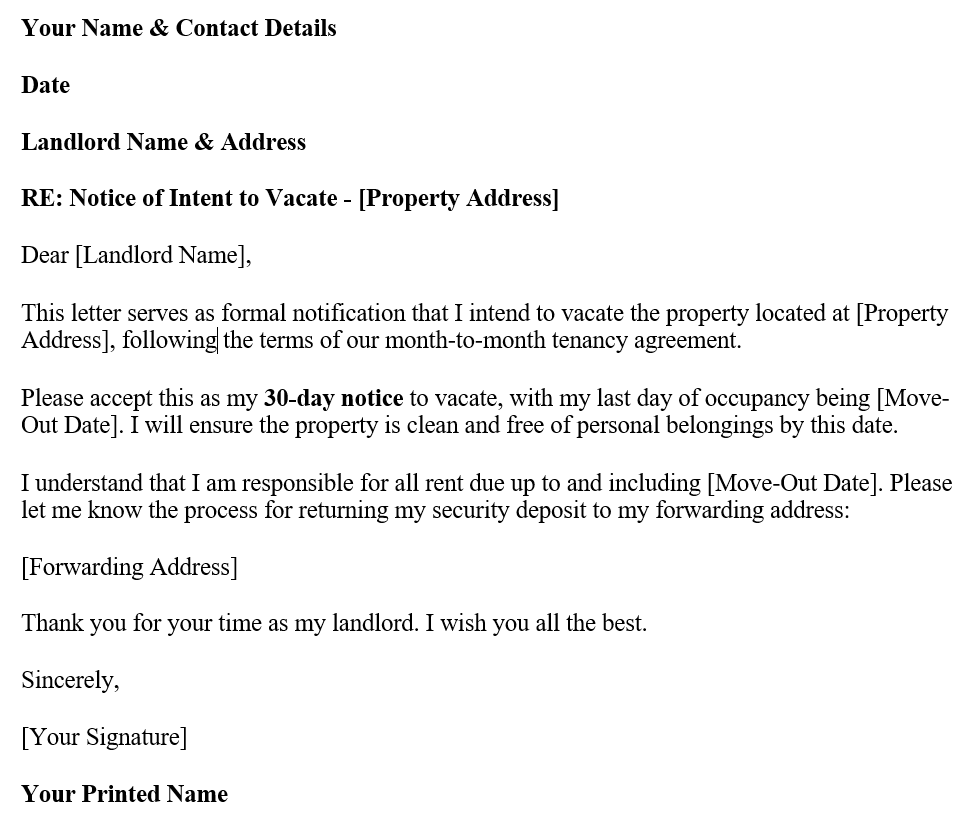Last Updated on May 29, 2024 by Kelvin Nielsen
Maybe a friend or a family allowed you to live with them for a while as you sort out your situation. Or perhaps, you moved into a rental property and continued to pay rent, but never signed an agreement with the landlord.
These are all perfect examples of how an at-till tenancy can occur!
A tenancy at will is a type of tenancy with no predetermined duration. Either party can terminate it at any point by serving the other an appropriate notice.
But while an at-will tenancy is informal, tenants still do enjoy a smorgasbord of rights under GA Code Title 44 Chapter 7. For instance, your landlord cannot do certain things, including renting you an unlivable property, entering your premises without permission, or withholding your deposit illegally.
How does a tenancy at will come about in Georgia?
Generally speaking, a tenancy at will can arise in either of two ways. One, it can arise when both you and your landlord have an express agreement. This can be verbal or even in writing.
In a written agreement, it can mention that the tenancy will be month-to-month with no fixed end date.
The other way a tenancy at will can come about is through an implied agreement. This is more common. “Implied” means that something is suggested without being stated outright.
You occupy the property with the landlord’s consent and assume all responsibilities of a tenant. Such as, paying rent, caring for the unit, and reporting maintenance issues.
What rights do tenants at will have in Georgia?
Even without a lease, tenants in Georgia enjoy a smorgasbord of rights under the statewide landlord-tenant law (GA Code Title 44 Chapter 7).
For instance, the landlord must provide you a habitable home. A habitable home meets the state’s basic health and safety codes. Including:
- Not having pests.
- Not having mold.
- Is structurally sound.
- Has clean, running water.
- Has working smoke and carbon monoxide detectors.
What’s more, the landlord must also respond to your repairs within reasonable time after proper notification. The following is a sample notice you can send them to request for needed or required repairs.

If the landlord fails to make the repairs within a reasonable time frame, you may be able to exercise some legal options. Including, suing for costs for any resulting damage, or repairing the issue and deducting costs from rent payments.
Besides being provided a habitable home, the following are some other rights you are entitled to.

How can you terminate a lease as a tenant at will in Georgia?
In Georgia, landlords and tenants have different notice requirements when it comes to lease termination. For landlords, they must serve their tenants with a notice of at least 60 days prior to terminating the tenancy of a tenant at will.
For tenants, you will only need to serve your landlord with a 30-day advance notice. And this is regardless of your stay in the property. Below is a template you can use when quitting your at will tenancy in Georgia.

What is the eviction process for at-will tenants in Georgia?
As already mentioned, any party in an at-will tenancy can terminate it. If the landlord initiates it, they must serve you a 60-day quit notice. If you refuse to leave within the 60 days, the landlord may need to seek legal redress to kick you out.
The following is a basic overview of the process landlords in Georgia must follow when evicting tenants at will.
#1: Serve you a 60-Day Notice to Quit.
This is the first thing the landlord must do as per GA eviction laws. If you refuse to leave within this notice period, the landlord can file an eviction lawsuit in an appropriate court.
#2: File a dispossessory affidavit in court.
After a successful filing process, the court’s clerk will issue the landlord with a copy of summons and complaint. These will be served on you by a sheriff or a process server before the hearing.
#3: Answer the complaint.
You will then have 7 days to answer the complaint. If you fail to do so, the court will issue a default judgment in favor of the landlord. But if you do, the court will schedule a hearing.
#4: Removal from the premises.
If the judgment favors your landlord, you’ll have no other option but to leave after the write of possession is issued.
Conclusion
At will tenants in Georgia enjoy numerous rights under the state’s landlord-tenant laws. Your landlord cannot harass you, discriminate against you on the basis of your protected classes, or even lock you out or throw out your belongings, among others.
Disclosure: The content herein isn’t a substitute for advice from a professional attorney. It’s only meant to serve educational purposes. If you have a specific question, kindly seek expert attorney services.
Sources: GA Code Title 44 Chapter 7, At-Will Tenancy, Georgia Landlord-Tenant Handbook

I am a real estate attorney with over 11 years of experience in tenant eviction cases. My mission here at LTRC is to help answer your commonly asked questions on everything regarding real estate laws, especially on eviction matters.
I’m a member of the following professional organizations: Attorneys’ Real Estate Councils of Florida (ARECs), Florida Bar Real Property, Probate & Trust Law Section, American College of Real Estate Lawyers (ACREL), and the Florida Association of Community Managers (FACM).







